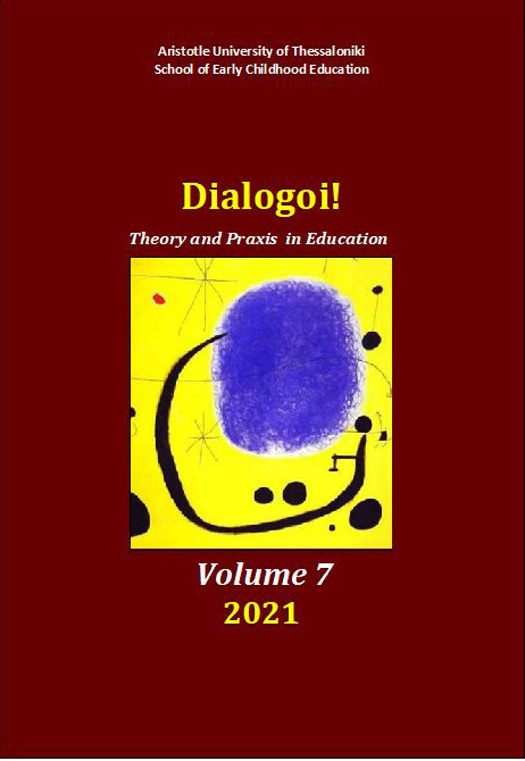Conflicts among teachers in school, effects and solutions

Abstract
Conflict is a disagreement and argument about something important. A conflict among the teaching staff is a common problem in the secondary schools. Many reasons may occur the inside-the-school conflicts and many results, positive and negative, are based on them. Teachers and school principal can solve them in a positive manner for the school organization. The present study examines the topic of inside-the-school conflicts among teachers of the same school. More specifically, the purpose of this paper is to redefine the secondary-education teachers’ opinions regarding the inside-the-school conflicts, their outcomes and the ways of dealing with them. Quantitative research was employed in order to elaborate on this topic. Αn online questionnaire with closed and open questions was used to implement the survey. The questions were based on Greek and international bibliography. It was distributed to a sample of 126 secondary school teachers in the prefecture of Karditsa in the academic year 2018-2019. The data was analyzed through the SPSS.24 statistic tool. The findings of the study revealed that the teachers-participants consider the inside-the-school conflicts possible both among colleagues and between each individual and the head teacher. According to the findings of the study the teachers and the principal consider the results of the conflicts have both positive and negative impact on the school function, either for the individuals or for the school principal. At first, according to the results, it appears that teachers identified positive outcomes related to school conflicts. The inside-the-school conflicts result in learning acceptable behaviors, developing new ideas, better understanding of one another, making the best decisions to deal with in-school issues, increasing productivity, team work, innovative proposals and creative solutions to school problems. It also appears that those conflicts clarify issues among teachers, contribute to the most efficient operation of the school, to a successful leadership and give support to a most effective administration of the school. On the other side, inside-the-school conflicts have a direct negative impact on work satisfaction, effectiveness and productivity of teachers. School conflicts bring negative emotions such as stress, frustration, disappointment, lack of communication and trust among school colleagues, hostility, weakened cooperation and negative climate for all, teachers and principal. However, the teachers themselves act as remedial factors against the negative results of these conflicts by adopting cooperation spirit, showing willingness to support each other and self-regulating their emotions. Finally, the decision-making strategies of the head teacher contribute in alleviating the negative outcome by creating a positive environment, a democratic and participatory way of managing the school and generally providing support towards the teachers. The results of this survey show that both teachers and school principal need to take into consideration the findings of the research in order to find out how they can be more effective at their work and achieve their professional goals. Further studies about school conflicts are needed to be organized, including a bigger sample of teachers who work in more and different prefectures in Greece, in order to collect more information about this school situation and confirm the findings of this survey.
Article Details
- How to Cite
-
Μαυρογεώργου Ε. (2021). Conflicts among teachers in school, effects and solutions. Dialogoi! Theory and Praxis in Education, 7, 231–249. https://doi.org/10.12681/dial.24565
- Issue
- Vol. 7 (2021)
- Section
- New researchers

This work is licensed under a Creative Commons Attribution-NonCommercial-ShareAlike 4.0 International License.
Authors who publish with this journal agree to the following terms:
- Authors retain copyright and grant the journal right of first publication with the work simultaneously licensed under a Creative Commons Attribution Non-Commercial License that allows others to share the work with an acknowledgement of the work's authorship and initial publication in this journal.
- Authors are able to enter into separate, additional contractual arrangements for the non-exclusive distribution of the journal's published version of the work (e.g. post it to an institutional repository or publish it in a book), with an acknowledgement of its initial publication in this journal.
- Authors are permitted and encouraged to post their work online (preferably in institutional repositories or on their website) prior to and during the submission process, as it can lead to productive exchanges, as well as earlier and greater citation of published work (See The Effect of Open Access).


